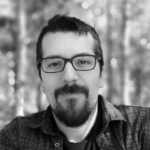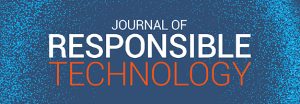As quantum computing technologies move towards commercialisation, there is increasing interest in their potential impact on society, evidenced by the recent publication of many national strategies and programmes on quantum technologies. As we have learned from other emerging technologies such as AI, public scrutiny and societal expectation around the responsible development and deployment of new technologies is on the increase — and most nations with a quantum computing programme therefore have parallel programmes on its responsible deployment. The current stage of development of quantum computing provides an early opportunity to build community consensus and capability throughout the ecosystem to ensure responsible and ethical quantum computing, alongside technical advances.
Key questions include the priorities for responsible and ethical development; who will have access, and for what purpose; how to prioritize use cases for good; and what regulation and governance might be required. Incorporating consideration of these questions at an early phase of development provides greater opportunities to shape pathways while development remains malleable, in order to prioritize the application of the technology to realize social benefits.
Recognizing the need to consider these topics has led to calls from industry stakeholders for guidelines and work on the responsible and ethical development of quantum computing. This workshop will bring together stakeholders from across the quantum computing ecosystem, together with researchers in responsible and ethical quantum computing from the humanities and social sciences, to build capabilities in responsible quantum computing, and to develop responsible quantum computing champions in industry and academia.
In this workshop, we discuss associated questions, including:
- Opportunities and challenges in the responsible development of quantum computing
- Societal benefits and risks
- Quantum computing governance and regulation
- Access to and democratization of quantum computing
The workshop will constitute an interdisciplinary exchange, providing the opportunity for discussion between stakeholders from industry, and both quantum computing and responsible innovation researchers.
Programme
10.00-11.30 Part 1: Context-setting and Landscape
- Welcome/opening remarks by chairs
- Keynote: Julian Velzen: “Why now is a good time to think about responsible quantum computing use” + Q&A
- Group breakout session on identifying priorities across the quantum computing stack and ecosystem and possible impacts on relevant stakeholders — including 10m feeding back to plenary
11.30-13.00Break
13.00- 14.30 Part 2: Access and equitability
- Paper presentations: Dr Carolyn Ten Holter; Dr Mira Wolf-Bauwens; Zeki Seskir
- Q&A discussion with presenters
- Group breakout session on access to QC – including 10 minutes feeding back to plenary
14.30-15.00 Break
15.00-16.30 Part 3: Embedding and operationalizing
- Panel: Industry and academic perspectives on the opportunities and challenges in developing QC responsibly: Dr Jennifer Glick, Dr Nathan Baker, chaired by Dr Natasha Oughton
- Group breakout section on embedding and operationalizing responsible and ethical quantum computing within industry and academia – including 10m feeding back to plenary
- Closing remarks from chairs
Speakers
 Dr Nathan Baker is the Head of Partnerships for Chemistry and Materials, Azure Quantum at Microsoft. Previously, Nathan was a Laboratory Fellow in the Physical and Computational Sciences Directorate at Pacific Northwest National Laboratory (PNNL) and a faculty member at Washington University in St. Louis with roles that included Associate Professor (tenured) of Biochemistry and Molecular Biophysics and Director of the Biophysics PhD program. His research interests include the development of new algorithms in applied mathematics and data science to support applications in chemistry, biology, and other domains. He is a member of the Washington State Academy of Sciences, Fellow of the American Association for the Advancement of Science (AAAS), and a former Alfred P Sloan Research Fellow.
Dr Nathan Baker is the Head of Partnerships for Chemistry and Materials, Azure Quantum at Microsoft. Previously, Nathan was a Laboratory Fellow in the Physical and Computational Sciences Directorate at Pacific Northwest National Laboratory (PNNL) and a faculty member at Washington University in St. Louis with roles that included Associate Professor (tenured) of Biochemistry and Molecular Biophysics and Director of the Biophysics PhD program. His research interests include the development of new algorithms in applied mathematics and data science to support applications in chemistry, biology, and other domains. He is a member of the Washington State Academy of Sciences, Fellow of the American Association for the Advancement of Science (AAAS), and a former Alfred P Sloan Research Fellow.
 Dr Jennifer Glick is a physicist and product owner at IBM Quantum. She has helped lead an effort to create partnerships that bring quantum technology into the real world. Her team of software engineers are building middleware for quantum to enable integration of classical and quantum computation in applications. Previously, she worked with IBM Quantum Network partners to research quantum methods for problems challenging to solve with today’s classical techniques. She received her PhD in physics from Michigan State University.
Dr Jennifer Glick is a physicist and product owner at IBM Quantum. She has helped lead an effort to create partnerships that bring quantum technology into the real world. Her team of software engineers are building middleware for quantum to enable integration of classical and quantum computation in applications. Previously, she worked with IBM Quantum Network partners to research quantum methods for problems challenging to solve with today’s classical techniques. She received her PhD in physics from Michigan State University.
 Dr Natasha Oughton leads on responsible and ethical quantum computing at the UK’s National Quantum Computing Centre, where she carries out research on responsible quantum computing, develops internal practices and guidance, and engages with stakeholders across the UK and global quantum computing landscape, including industry, policymakers, and researchers. She has a background in both philosophy and physics, and wrote her DPhil thesis on understanding physics through quantum information theory at the University of Oxford. At Oxford, she co-convened the weekly Philosophy of Physics Graduate Seminar for two years, and was a co-organizer of the inaugural Oxford Philosophy of Physics Graduate Conference.
Dr Natasha Oughton leads on responsible and ethical quantum computing at the UK’s National Quantum Computing Centre, where she carries out research on responsible quantum computing, develops internal practices and guidance, and engages with stakeholders across the UK and global quantum computing landscape, including industry, policymakers, and researchers. She has a background in both philosophy and physics, and wrote her DPhil thesis on understanding physics through quantum information theory at the University of Oxford. At Oxford, she co-convened the weekly Philosophy of Physics Graduate Seminar for two years, and was a co-organizer of the inaugural Oxford Philosophy of Physics Graduate Conference.
 Zeki C Seskir is a researcher and project coordinator at the Institute for Technology Assessment and Systems Analysis (ITAS) of Karlsruhe Institute of Technology (KIT) in Germany working in the landscaping of QT ecosystem(s), education and outreach research, and conceptual operationalization for ELSA research in QT. He has been a member of the QCousins Department since 2019 under QWorld, a global NGO active in 25+ countries working on education and popularization efforts on quantum technologies, primarily quantum software. He was a founding co-coordinator of QTurkey between 2019-2022 and currently acts in an advisory capacity. He has a BSc MSc in Physics, and a MSc in Science and Technology Policy Studies (STPS) from METU in Ankara.
Zeki C Seskir is a researcher and project coordinator at the Institute for Technology Assessment and Systems Analysis (ITAS) of Karlsruhe Institute of Technology (KIT) in Germany working in the landscaping of QT ecosystem(s), education and outreach research, and conceptual operationalization for ELSA research in QT. He has been a member of the QCousins Department since 2019 under QWorld, a global NGO active in 25+ countries working on education and popularization efforts on quantum technologies, primarily quantum software. He was a founding co-coordinator of QTurkey between 2019-2022 and currently acts in an advisory capacity. He has a BSc MSc in Physics, and a MSc in Science and Technology Policy Studies (STPS) from METU in Ankara.

Dr Carolyn Ten Holter is a postdoctoral researcher in Oxford’s Responsible Technology Institute and leads the work on responsible development of quantum computing within the Institute. Her work at the Institute focuses on the practical application of responsible innovation techniques in a variety of domains including human-centred AI and the environmental sustainability of ICT. She has a particular interest in policymaking and governance for novel technologies, and expertise in participatory and stakeholder-inclusive methods. Her work includes liaising with the Institute’s networks of civil society organisations, projects, and other organisations that work on similar themes. Prior to academia, her background is in industry, law, and commercial ICT. Her conference-organisation experience includes leading on the organization of Oxford’s first carbon-neutral conference, the 100+ Brilliant Women in AI and Ethics.
 Julian Velzen is the Head of the Capgemini quantum lab; a global network of quantum experts, partners and facilities focused on three key areas: Sensing, Communication and Computing. From this Lab, Capgemini is exploring and building the path towards a quantum advantage with its clients for business and societal problems that, up until now, are seemingly intractable. Julian has a background in condensed matter physics from the University of Amsterdam, he is part of the group CTIO community, he is the Dutch representative of the European quantum consortium (QuIC), a member of the Forbes Technology Council, and co-founder of the quantum gateway foundation.
Julian Velzen is the Head of the Capgemini quantum lab; a global network of quantum experts, partners and facilities focused on three key areas: Sensing, Communication and Computing. From this Lab, Capgemini is exploring and building the path towards a quantum advantage with its clients for business and societal problems that, up until now, are seemingly intractable. Julian has a background in condensed matter physics from the University of Amsterdam, he is part of the group CTIO community, he is the Dutch representative of the European quantum consortium (QuIC), a member of the Forbes Technology Council, and co-founder of the quantum gateway foundation.
 Dr Mira L Wolf-Bauwens leads the Responsible Quantum Computing effort in the Responsible & Inclusive Technologies Team at IBM Research. Mira is a Research Scientist and also is a IBM Quantum Technical Ambassador. She brings with her experience in normative analysis, strategy and business consulting, development corporation, start-up leadership and digitalisation. Mira holds a PhD in Political Philosophy on institutional recognition and normative evaluation of emerging technologies from University of Zurich with Visiting Research Fellowships at Columbia University and University of Oxford.
Dr Mira L Wolf-Bauwens leads the Responsible Quantum Computing effort in the Responsible & Inclusive Technologies Team at IBM Research. Mira is a Research Scientist and also is a IBM Quantum Technical Ambassador. She brings with her experience in normative analysis, strategy and business consulting, development corporation, start-up leadership and digitalisation. Mira holds a PhD in Political Philosophy on institutional recognition and normative evaluation of emerging technologies from University of Zurich with Visiting Research Fellowships at Columbia University and University of Oxford.




